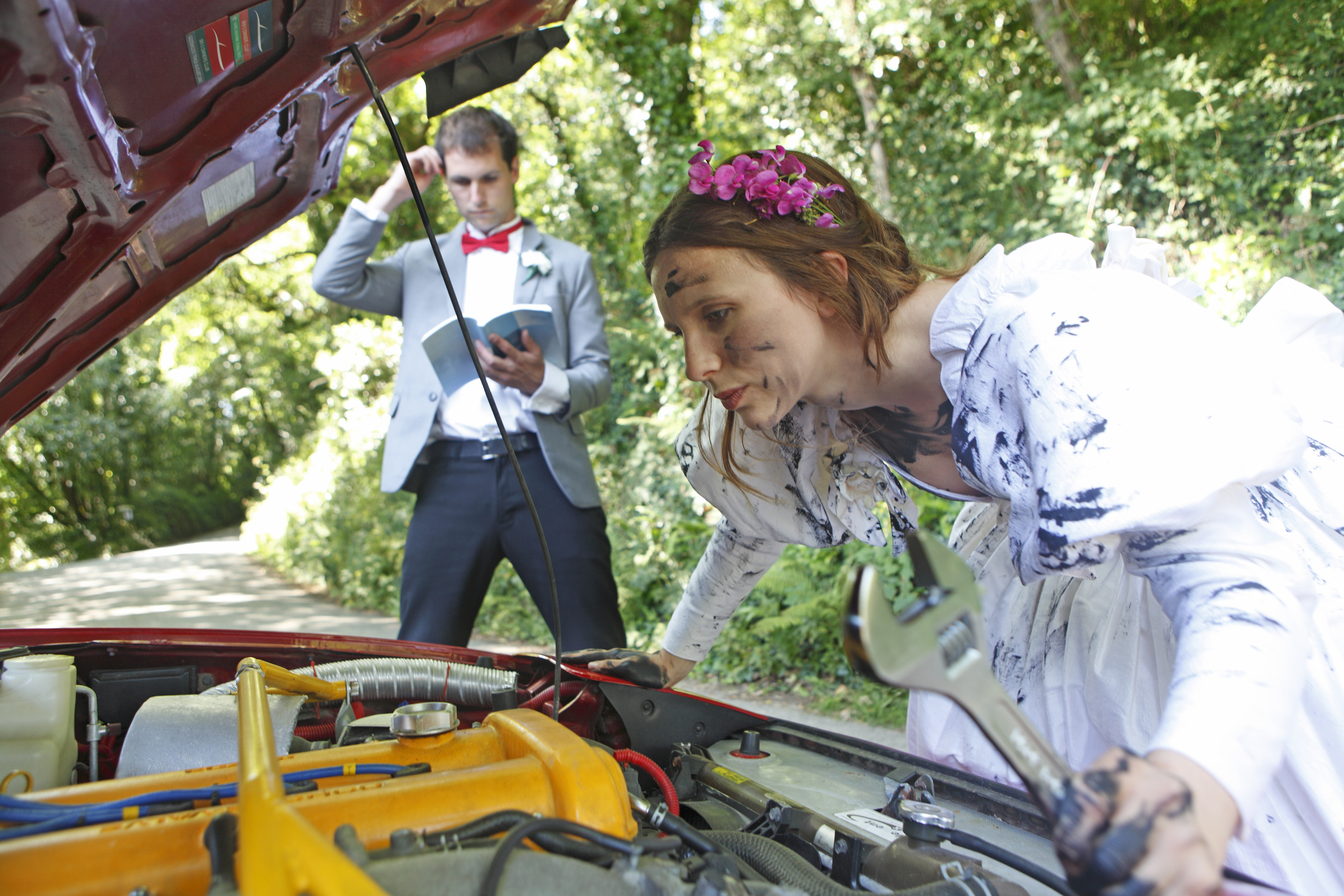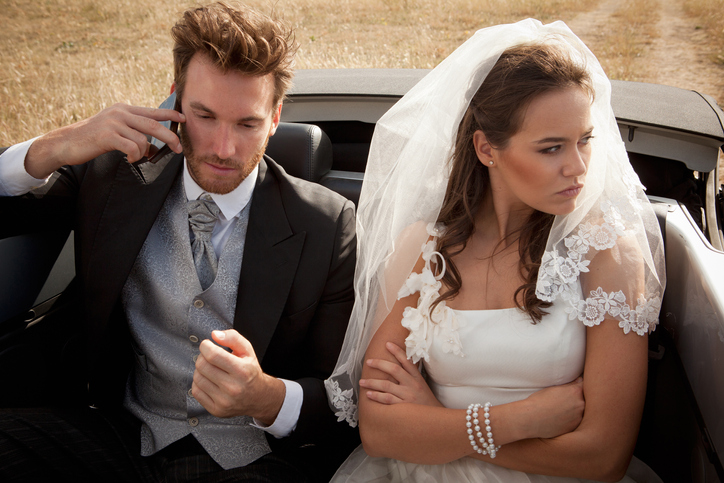The process of planning a wedding can slowly take over your life. So it’s unsurprising that some brides and grooms experience a post-wedding comedown.
Tying the knot has been referred to as the best day of a woman’s life in popular culture for centuries. But by challenging our expectations and validating our feelings, we might be able to prevent or minimise the effects of post-wedding depression.
Post-wedding depression: is it normal? Is it real?
Post-wedding depression is common, and it is very real. In one 2018 study of 152 women, 12 per cent reported depression after their wedding. Another 2016 study found that nearly half of its participants were left feeling let down or depressed after the ceremony had ended. It can occur anytime, from straight after the wedding to after the honeymoon.
What are the triggers?
The triggers depend on various factors. There are plenty of reasons why a person might become depressed after their wedding day. We’ll delve into them below and give you tips to mitigate and manage post-wedding depression.
Does it happen to Brides and Grooms?
It’s not all bridal blues. Grooms suffer from post-wedding blues too. “I was so depressed, I honestly didn’t know what to do,” Brian Lambert recalled to the Washington Post. “We had no appointments with vendors, no centerpieces to put together, nothing to try and design. I found myself going to the office on the weekends more to try and keep myself busy … Our apartment is now a zoo as I kept bringing creatures back; now, I have 12 different fish tanks set up.” Uh oh!
Can it start pre-wedding?
Yep! The stress and pressure caused by wedding planning can lead to excited brides and grooms feeling so overwhelmed that they even become bed-ridden. Delegating tasks where you can, allowing room for things to go wrong, and giving yourself plenty of time to plan may help ease the pressure a little.

What can you do to prevent it?
Manage your expectations.
Jocelyn Charnas, a clinical psychologist practising in Manhattan told NBC News that “a lot of [post wedding depression] stems from the tremendous expectations that we put on the wedding date and the tremendous focus that we put on it in the months preceding it. One could argue that it has gotten worse in the era of social media — the behemoth of the wedding industry, the idea that this should be quote-unquote the best day of our lives, women can spend years [planning this one day].”
Set some boundaries. Have wedding-free communication days and learn to talk about your needs with your partner openly and directly. Psychology Today recommends spending time talking about and doing non-wedding-related things together to maintain some normalcy in your relationship and prevent feeling low after the wedding.
And be realistic about how you’ll feel in the months after marrying your significant other. “Some days we’re happy, some days we’re nervous, some days not much of anything happens. This idea that every day has to be this fabulous Instagram filtered event leads people to those unrealistic ideas of what life should be like,” said Charnas.
Is your wedding planning becoming a way to avoid responsibilities?
Planning a wedding can be fun! Dealing with the mundane is not. “Oftentimes we use wedding planning as an excuse to put off other things that might be anxiety-provoking, like going back to school or getting a new job. And when the wedding is over, we’re then faced with those things, and that can contribute to a sense of disappointment or stress,” Charnas said. Using your wedding to avoid your responsibilities could cause stress to build up over time. After the wedding, plan some treats between getting those day-to-day activities done.
Tend to your emotions, don’t suppress them.
Most newlyweds experience a high during the wedding, but it often leads to an emotional crash. There’s plenty of research out there to suggest that naming, feeling and nurturing our negative emotions is a healthy way of processing them.
We’re taught we should feel ecstatic after marrying our partner. But that’s not always the case. Rather than suppressing what you feel, validate your experience of post-wedding depression and be self-compassionate. This way, you can start to understand how these feelings came about in the first place.
“People who have been living together think they’re going to feel something different once they’re married,” Dr Michelle Gannon, a San Francisco psychologist, told Time. The reality is that, after the honeymoon, you’re going to go back to regular life. It’s essential to plan some personal goals and things to look forward to after the wedding ends.

Spend time reflecting on your relationship at all steps of planning your wedding.
Some people report feeling ‘buyer’s remorse’ after their wedding. Try to be proactive about deterring post-wedding blues by asking yourself hard questions: is marriage really what your relationship needs? Being honest about the answer will prevent a lot of pain in the long run. Are you getting married because it’s what you feel you’re meant to do? Or is it because you genuinely see yourself being with this person until death do you part?
What else can we do to prevent the wedding bell blues?
Most people’s honeymoon periods don’t go without experiencing some healthy conflict, so don’t get too discouraged if you and your partner fight a little during this period. “Where did you get the idea that you weren’t supposed to fight?” said Gannon. “You are. It’s normal.” Our idealism tells us that love should be blissful 100 per cent of the time. Keep in mind that that’s likely unrealistic. Also, remember that your independence doesn’t need to be sacrificed for a marriage. We are all responsible for seeking out our own happiness, and it’s not up to someone else to provide that.

If you’re still feeling blue after six months, seek help.
If you’re at a point where a lot of time has passed since your wedding, and you’re still feeling awful, it’s likely that your depression has deeper roots. “When it manifests itself in a severe way, it’s more about some underlying and possibly preexisting issue, like a clinical mental-health issue or a serious underlying problem in the relationship that has to be looked at,” Charnas said.
Head to your GP and ask them if they can help you find a suitable psychologist.
Keep close ties to your friends and family after the wedding, and talk to your spouse about how you’re feeling.
If you’re concerned or at risk, you can call Lifeline’s crisis support line on 13 11 14.




